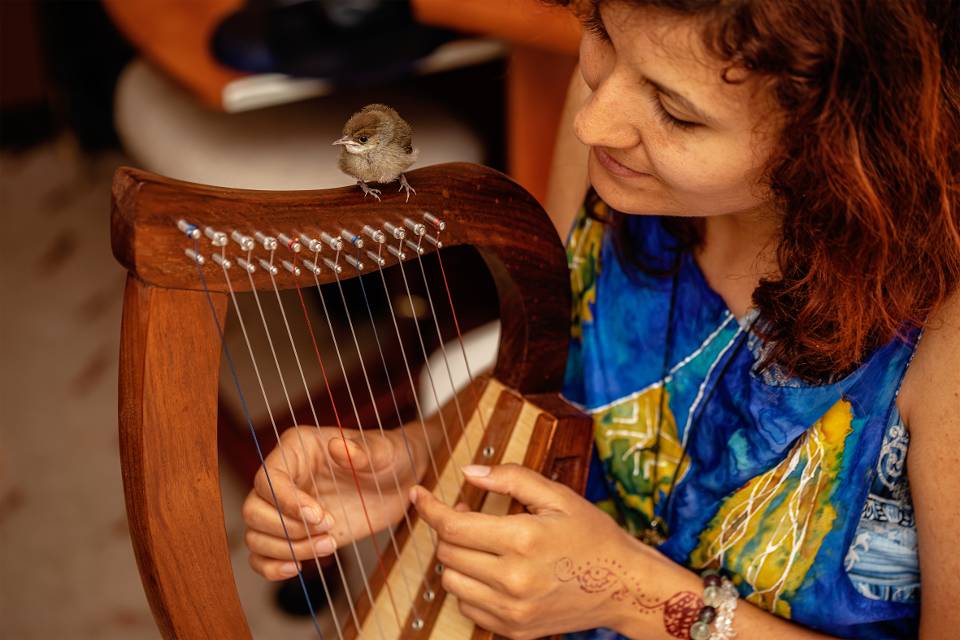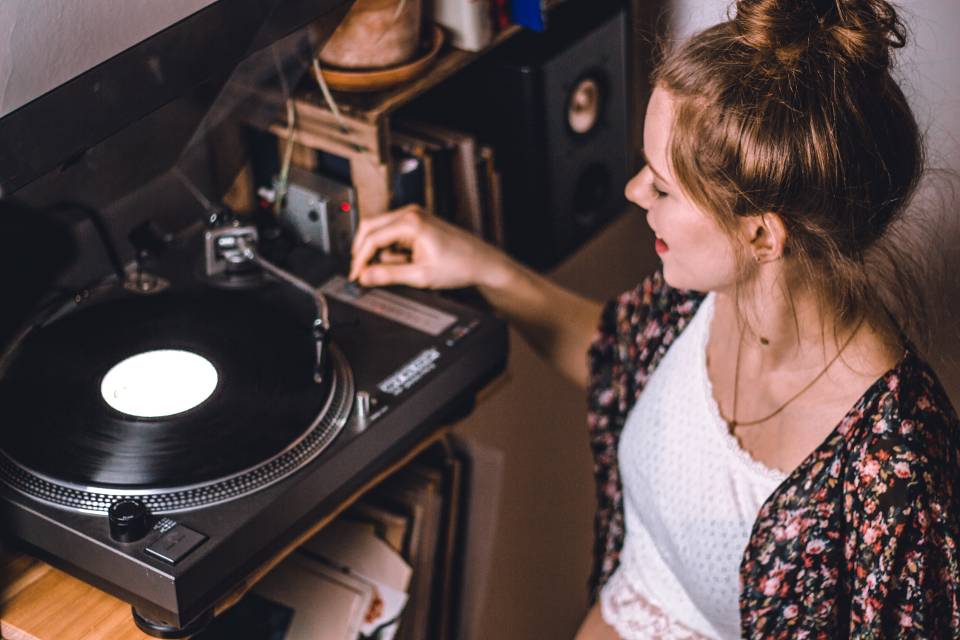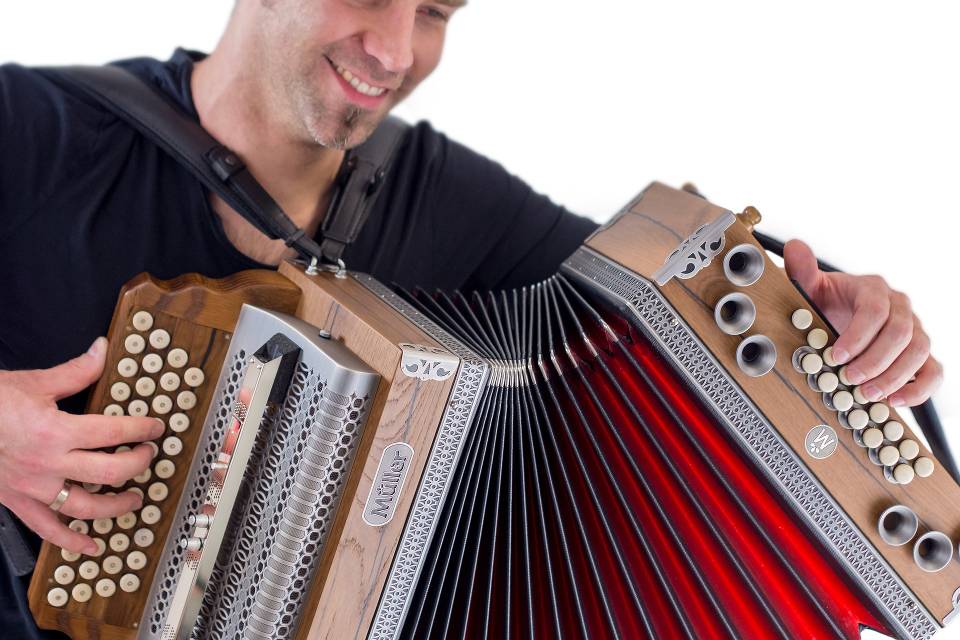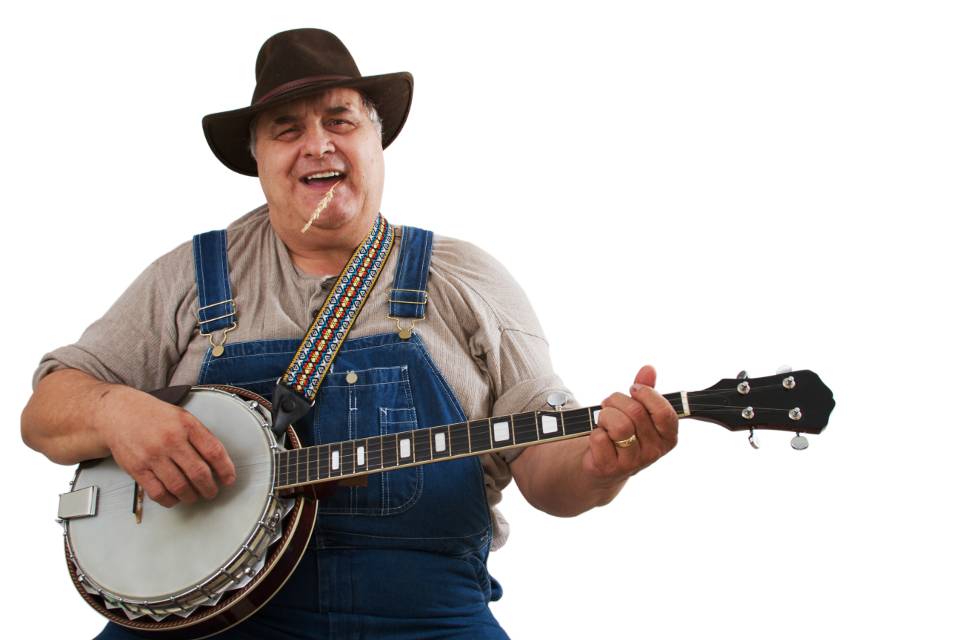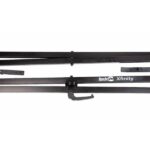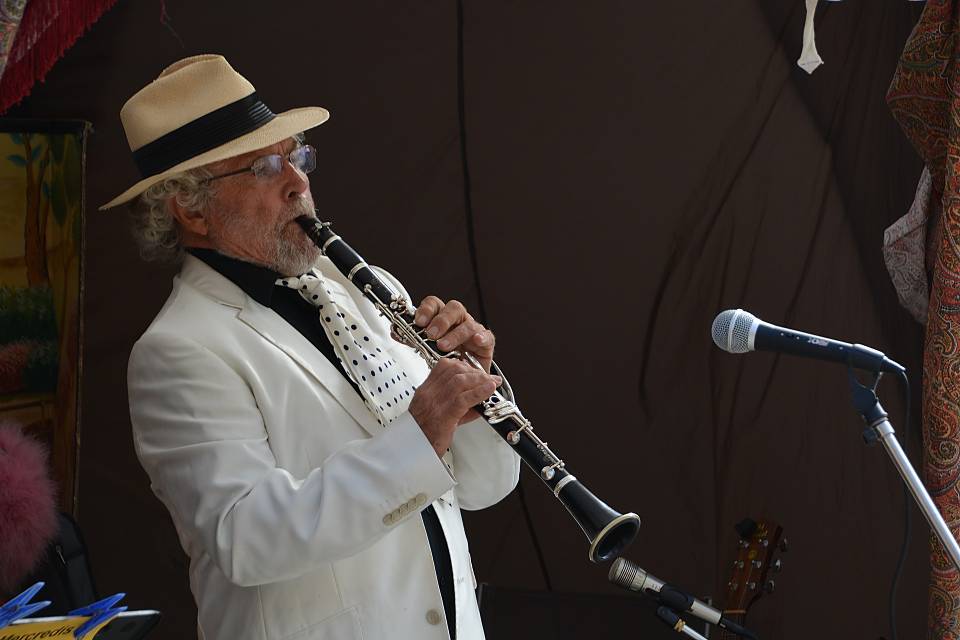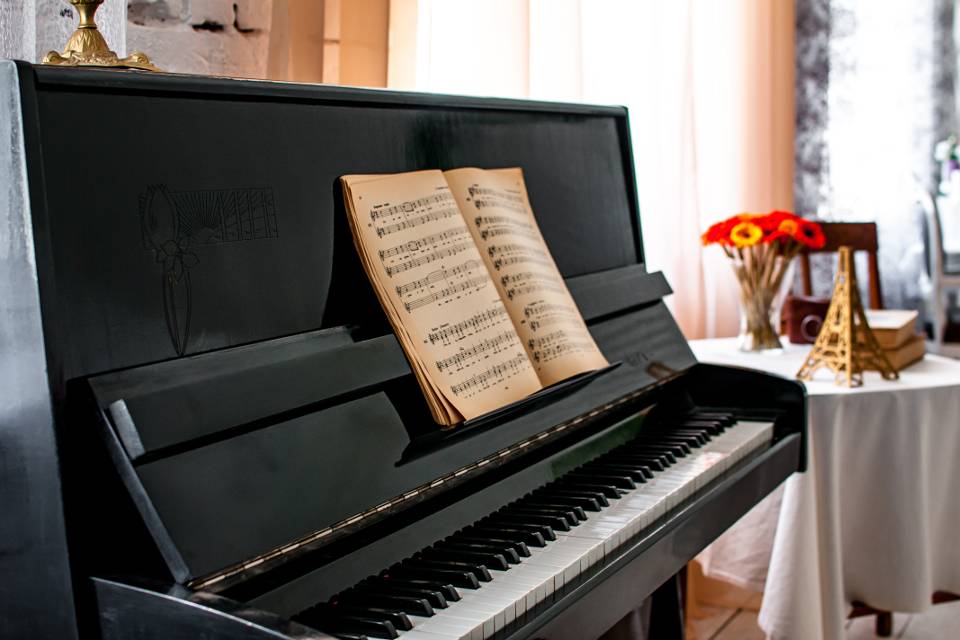
Setting out to learn how to play an instrument is one of the best things an individual can do. This way, anyone can get an additional voice and find ways to express themselves through music. And the best thing these days is that you can choose almost any instrument that you like. But among the many out there, one of the most popular picks is the piano.
There are certain advantages that this instrument provides. First off, it’s intuitive and it’s pretty easy to figure out since everything is laid out in front of you. Second, there are plenty of keyboard-based instruments, including MIDI controllers that you’ll be able to use when you learn how to play the piano. And, finally, it presents a solid foundation if you want to play any other instrument later on in life.
However, in order to learn how to play the piano, you’ll need good literature. With this in mind, we’ve decided to cover some of the best piano books for beginners.
Contents
- 1 Piano for Dummies
- 2 Alfred’s Basic Adult Piano Course: Lesson Book, Level One
- 3 Lesson Book: Piano Adventures
- 4 Piano Book for Adult Beginners
- 5 John Thompson’s Easiest Piano Course Part 1
- 6 Big Book of Beginner’s Piano Classics
- 7 Piano Lesson Book: Complete Level 1, for the Later Beginner
- 8 Piano for the Young Beginner: Primer A
- 9 How To Play Keyboard: A Complete Guide for Absolute Beginners
- 10 ‘Easiest’ Beginner Piano Method: Gordon Banks Method
- 11 How to Use Piano Books Effectively as a Beginner
- 12 Conclusion
Piano for Dummies

We’ll start things off with one of the books from the classic “For Dummies” series. Among countless things these books covered, there’s also one about learning piano, simply titled “Piano for Dummies.” It is intended for a wide scope of different music enthusiasts. However, it may not be the best option for the youngest ones.
Nonetheless, the book provides very detailed information about the instrument, music theory, and technique. It also has a bunch of great exercises for entry-level players of any age. Basically, with this book, you’ll be able to go from a complete piano ignoramus to a beginner who’s capable of reading and playing entry-level songs and exercises. It’s more than enough to prepare you for further levels of playing and it will give you all the essential basic knowledge you need.
Alfred’s Basic Adult Piano Course: Lesson Book, Level One

There’s a common misconception about learning music as an adult. The thing is, many people think that it’s impossible to learn how to play an instrument after you pass a certain age. This is why many potential adult music lovers are often discouraged to start learning. But even though it’s definitely difficult to learn how to play an instrument as an adult, it’s most certainly far from an impossible task.
If you’re one of those people who are already in their 20s, 30s or 40s, a book like “Alfred’s Basic Adult Piano Course” can be a good choice to consider. Of course, it’s intended to work best with the assistance of a teacher or any other experienced pianist who can help you. However, it’s still a very useful resource for anyone from the targeted audience.
Lesson Book: Piano Adventures
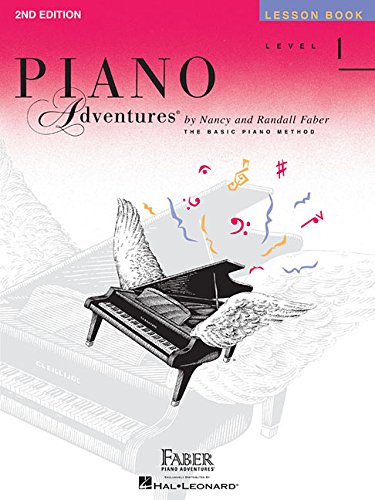
“Lesson Book: Piano Adventures,” on the other hand, is for almost any age. The biggest advantage of this book, written and compiled by Nancy Faber, is its accessibility and straightforward approach. This way, even a complete beginner will be able to understand some of the much-needed fundamentals of piano playing.
For instance, you can find lessons on how to read notes, how to build chords on the piano, and even some essential info about scales. Of course, there’s also stuff about different fingering positions, techniques, as well as the implementation of these things in practice.
Overall, this is one of the favorite books among piano teachers working with younger students. It’s fun, it’s a very useful pedagogical tool, and – above all – it’s really fun to use. It’s one of the first books you’ll want to consider when finding the best one for your needs.
Piano Book for Adult Beginners

Another one designed for those who plan on learning piano later in life, “Piano Book for Adult Beginners” is a great resource for this particular age group. But compared to the previous example that we mentioned, the author Damon Ferrante focuses on music theory and its application in practice, no matter the genre that you’re interested in. And what’s really important to note here is that this is not just a regular book. There are also 20 online streaming video lessons that you get with it. Meanwhile, the book provides you with all the necessary exercises and sheet music for some famous musical pieces.
But the most important thing about this book is that it’s very systematized and layered, making it very useful for beginners. All you need to do is cover all of the lessons and make sure you fully understood the info before moving forward.
John Thompson’s Easiest Piano Course Part 1

For all those interested in buying their kid some of the best piano books for beginners, “John Thompson’s Easiest Piano Course Part 1” comes as a great addition to this list. Available both as a paperback and in Kindle format, this is a very comprehensive resource intended for the youngest generations. The book is filled with a few cheerful and colorful characters, an approach that can be pretty useful for kids who are trying to understand and memorize new concepts.
Aside from the very detailed and systematized step-by-step exercises, there are also sight-reading drills and different worksheets and assignments. With the help of a teacher or a parent, the child will be able to understand the basics and build the fundamental skills that are much-needed for any further musical development.
Big Book of Beginner’s Piano Classics
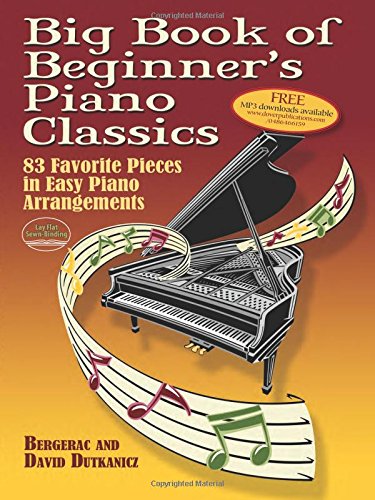
In case you’re a beginner who’s already familiar with some of the basics, or know such a novice pianist that needs some adequate resources, then “Big Book of Beginner’s Piano Classics” comes as a very useful tool. In fact, it’s more of a collection of famous piano classics rather than a regular book.
However, the important thing to note is that all 83 of these pieces are arranged and adapted for beginners. They’re also organized in such an order that will help any beginner pianist excel, with each piece being slightly more difficult than the previous one. The book also comes with downloadable MP3 files of some of its examples. Overall, this one can work well with the help of a teacher or any other experienced pianist. Yes, these arrangements are easy to follow, but you’ll need some help if you’re a complete beginner.
Piano Lesson Book: Complete Level 1, for the Later Beginner

Similar to the one described above, “Piano Lesson Book” by Willard A. Palmer, Morton Manus, and Amanda Vick Lethco is also intended for beginners who have mastered some of the basics. As the rest of the title explains, it’s for later beginners. Essentially, the book features a somewhat faster learning program, going through levels 1A and 1B at the same time.
This book was written for children aged 8 and up, or even younger pianists who show more interest and talent early on. With this said, it’s recommended that this book is used with the assistance of an experienced teacher. The thing is, a parent who’s not that familiar with some basic principles might not be the perfect guide in this case. Still, it’s a great resource for anyone remotely serious about becoming a professional pianist one day.
Piano for the Young Beginner: Primer A

We would also like to include “Piano for the Young Beginner: Primer A” on this list, since it provides very detailed methods and exercises for the youngest students, somewhere around the age of 5 and 6. Written by experienced tutors James Bastien and Jane Smisor Bastien, it combines some popular, traditional, and seasonal songs, all of which are adapted for beginners of young ages. It’s also filled with many colorful visual aids that make it easier for the student to memorize things. It’s just what the 5 or 6-year-old students and their teachers need in order to have successful lessons.
How To Play Keyboard: A Complete Guide for Absolute Beginners
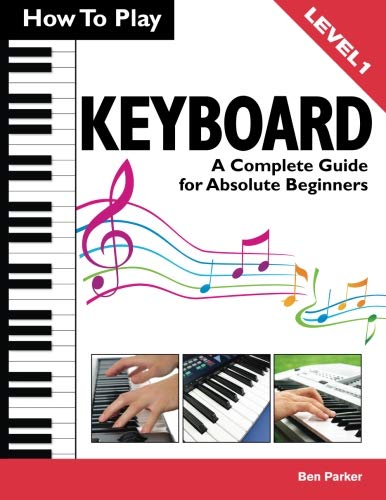
Here we have something universal for all ages. However, what makes this particular book special is that it incorporates any form of electronic keyboards as well, not just the acoustic or electric piano. As described, you really don’t need any previous musical experience for using this book. All of the lessons and explanations are pretty clear and straightforward.
The main intention of this book is to have a laid-back approach. It’s a fun and brief resource for learning basic concepts and some exciting playing techniques and tricks. With the hands-on approach in this book written by Ben Parker, you’ll be able to implement any of these concepts in practice.
While it’s not a completely “serious” book or something that a future professional pianist would rely on, it’s still pretty fun and engaging.
‘Easiest’ Beginner Piano Method: Gordon Banks Method

While saying that it’s the “easiest” method is somewhat of a joke in the title, this is still one fairly accessible book intended for older kids, teenagers, or adults. There’s a very simple approach here, and that’s to start learning the piano by using your 10 fingers on 10 keys only. After all, when you look at the piano, it has the same pattern of black and white keys that repeats from the lowest to the highest notes.
In addition, all of the exercises and songs are written in five keys only – C, D, E, F, and G. It’s all about coordinating your left and right hand – one of the main issues for beginners – and building some technical and theoretical foundations for further advancement.
How to Use Piano Books Effectively as a Beginner
Learning with a Parent or a Tutor
You might have noticed that a certain number of these books is recommended to be used with the help of a professional and experienced tutor. While we also tried to include other stuff, like some very intuitive and straightforward books that kids below the age of 10 can use with their parents, even if they’re not that familiar with the piano.
However, if you want better results and if you want your child to keep being persistent while working on their skills, it’s recommended that you hire a piano teacher. The instrument is really accessible for beginners and is not as complicated in these stages as compared to the violin or the guitar.
If you’re an adult music enthusiast who’s looking to learn how to play piano, it’s somewhat easier to go through these books on your own. Yes, hiring a teacher and using some of these books as a reference and practicing tool is definitely a better option. But still, some of the books we mentioned are intended for those looking to learn to play the piano on their own.
Use More Than One Book
No matter the age, you should always be open to using more than just one book. This is the best and safest way for you to get the full picture. No matter how great one book might be, there are always some details that other books might have covered better.
Learn with Online Resources
Today, we live in a time where many resources are available for free, and you can use them in combination with any of these books. Just like with using more books, it’s always recommended that you use anything that’s at your disposal. And is there anything better than finding experienced pianists showing concrete examples on YouTube?
Conclusion
At the end of the day, the choice is up to you. Whether you’re somewhat familiar with the piano, or are a complete ignoramus, there’s always a good book that you can find. But before you go into it, you need to ask yourself what you really want to achieve. For instance, a book like “How To Play Keyboard: A Complete Guide for Absolute Beginners” is a great choice for anyone who just wants to have fun with a piano or any type of a keyboard instrument. A similar thing could be said about “Piano for Dummies“.
However, if you, or anyone you’re buying this book for, are more serious about becoming great pianists or keyboardists, then “John Thompson’s Easiest Piano Course Part 1” comes as a good choice. Another great example would be “Piano Lesson Book: Complete Level 1, for the Later Beginner” or “Piano Lesson Book” by Palmer, Manus, and Lethco.
But there’s one very important thing you need to bear in mind – it’s not just about the books, it’s about being persistent and patient with your learning. There’s no book or a method that will teach you how to play any instrument if you’re not motivated enough to keep learning and practicing new things.

